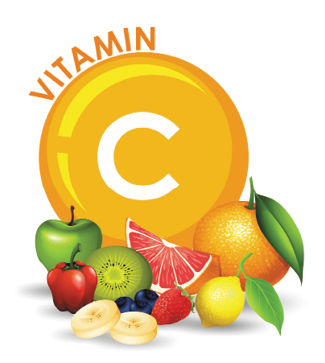Q: I’ve been taking vitamin C since the 1970s. Should I continue taking it? Should I boost my intake if I feel a cold coming on?
A: Alice H. Lichtenstein, DSc, Gershoff Professor of Nutrition Science and Policy at the Friedman School and director of the Cardiovascular Nutrition Laboratory at the Human Nutrition Research Center on Aging, answers: “If you’ve been taking vitamin C supplements since the 1970s, you are likely following the advice of Linus Pauling, a Nobel prize winning chemist who championed high doses of vitamin C as a way to prevent common colds. Unfortunately, research has not borne out his theory. It is possible supplemental vitamin C might help decrease the duration and severity of colds for some people (some small trials suggest the dose typically found in a multivitamin is enough for this effect), but even mega-doses of more than 500 milligrams (mg) a day have not been found to prevent colds.
“Vitamin C (also called ascorbic acid) is involved in immune function, wound healing, and building the connective tissue collagen. It is an antioxidant (which means it can neutralize compounds called free radicals that can damage cells) and is needed to make some hormones and neurotransmitters. It also helps with iron absorption.
“The body cannot manufacture vitamin C, so we must get it through dietary intake. Vitamin C is found in most fruits and vegetables. Particularly rich sources include kiwifruit, bell peppers, berries, citrus fruits, papaya, tomatoes, white potatoes, cruciferous vegetables like broccoli, Brussels sprouts, cabbage, and cauliflower, and green chili peppers. This vitamin is so ubiquitous that most U.S. adults routinely exceed the Recommended Daily Allowance (RDA) of 75 mg a day for women and 90 mg a day for men. For perspective, bell peppers contain 150 to 180 mg, and an orange has about 51 mg (the actual amount depends on how long the fruits and vegetables have been stored and how much heat they have been exposed to during preparation).
“We can only absorb a certain amount of vitamin C, so any excess will be excreted in your urine. This means although high doses are not toxic, they may create problems. Intake of more than 3,000 mg a day (from a combination of food and supplements) has been known to cause diarrhea, raise levels of uric acid in the blood (which is a risk factor for gout), and increase risk of kidney stones. High urinary vitamin C levels can cause false-negative values when testing for glucose.”
Q: I understand I should avoid or limit how much “processed meat” I eat. Can you go into more details as to what constitutes “processed meat?”
A: Judith C. Thalheimer, RD, LDN, executive editor of Tufts Health & Nutrition Letter, answers: “You are right to limit your intake of processed meats, as eating even small amounts is associated with increased risk for colorectal cancer and cardiovascular disease. Processed meat is any meat that has been preserved by salting, curing, smoking, fermentation, or dehydration. What all of these processes have in common is the use of nitrites (or nitrates that then turn into nitrites). Nitrites block the growth of bacteria and prevent spoilage. They also give the meats their characteristic color and flavor. Products that do not use artificial nitrates or nitrites can claim to be nitrate/nitrite-free, but that is not the case. These products likely contain natural sources of these compounds, like celery powder or salts. If the meat has a long shelf-life, it contains nitrates and/or nitrites. Canned meats likely have nitrites, but canned fish and poultry typically do not.”
























